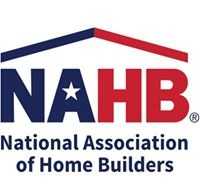WASHINGTON (November 2, 2017) – (RealEstateRama) — Builder confidence in the single-family 55+ housing market continued to be positive in the third quarter of 2017, according to the National Association of Home Builders (NAHB) 55+ Housing Market Index (HMI), released today.
While the index measuring builder confidence in the single-family 55+ market dropped from a reading of 66 in the second quarter to 59 this quarter, it’s the 14th quarter in a row in which the reading was above 50, the break-even point at which more respondents see conditions as good than poor.
The effects of destructive hurricanes and a series of wildfires earlier this fall are likely reflected in this quarter’s survey, which was conducted in September, said Dennis Cunningham, chairman of NAHB’s 55+ Housing Industry Council and president of ActiveWest Builders in Coeur d’Alene, Idaho.
“However, this is a temporary effect. Overall confidence remains high and builders continue to be optimistic about the 55+ market in the long run.”
There are separate 55+ HMIs for two segments of the 55+ housing market: single-family homes and multifamily condominiums. Each 55+ HMI measures builder sentiment based on a survey that asks if current sales, prospective buyer traffic and anticipated six-month sales for that market are good, fair or poor (high, average or low for traffic).
When compared to the previous quarter, among the three single-family components of the 55+ HMI, present sales dropped from 70 to 65, sales expected in the next six months from 80 to 63, and traffic of prospective buyers from 53 to 44.
Meanwhile, the 55+ multifamily condo HMI slipped slightly from 53 to 51. Of the three 55+ condo HMI components, present sales edged down from 56 to 55, sales expected in the next six months stayed the same at 55 and traffic dipped from 45 to 40.
Conversely, all four components of the 55+ multifamily rental market went up from the second quarter: present production from 53 to 59, production expected in next six months from 52 to 57, present demand for existing units from 66 to 75 and demand expected in next six months from 67 to 76.
“The decline in the 55+ single-family HMI is consistent with slight softening of other measures of single-family construction seen recently, driven by the effect of the natural disasters on top of ongoing issues with the supply of labor, lots and some building materials,” said NAHB Chief Economist Robert Dietz. “However, market conditions on balance remain favorable, and we expect gradual continued growth in the 55+ housing sector.”
CONTACTS
Stephanie Pagan
202-266-8254







